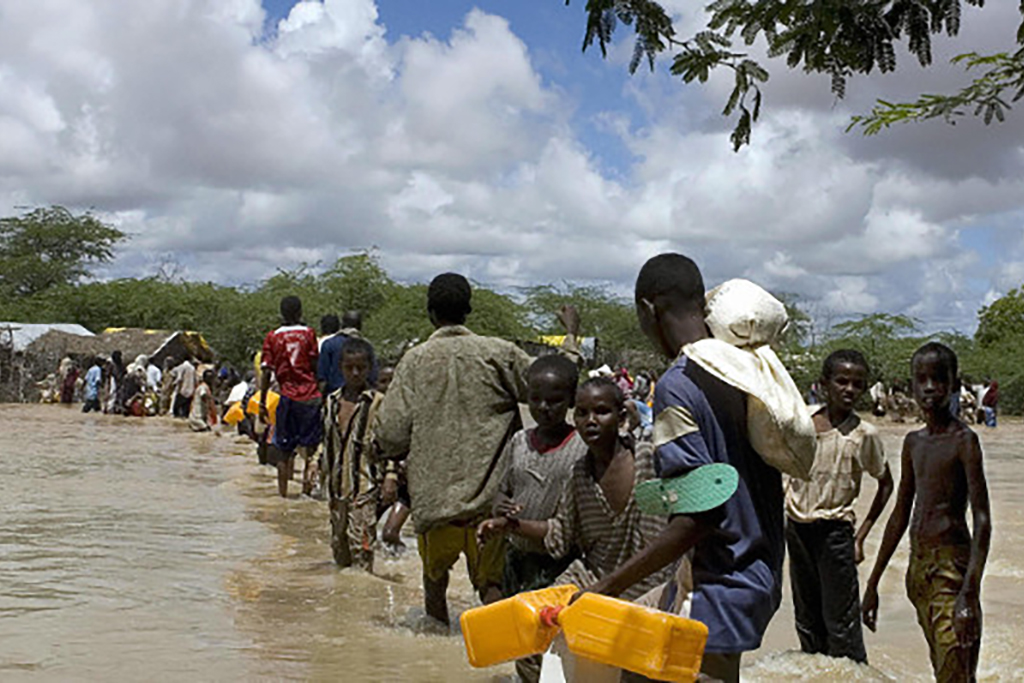Clark alum in Africa rises to the challenge of climate change

For Aougouri Romain Kiragoulou, M.A. ’22, success has always been measured by the impact he can have on the lives of others. During his time at Clark, Kiragoulou specialized in international development with a concentration in refugees, forced migration, and belonging — a passion he has carried forward into his personal and professional lives.
After earning his master’s degree from the International Development, Community, and Environment Department, Kiragoulou returned to his home of Burkina Faso, West Africa, where he helps grassroots associations advance community development initiatives. “I want to push my education to better the local community,” he says.
Kiragoulou assists people who were forced to leave their homes due to the disastrous effects of climate change, with an emphasis on ensuring that those with disabilities can settle into their new community and participate fully in efforts to foster both personal and communal growth.
“These are people who typically are left out of community development projects,” he says.
Kiragoulou works as a behavioral and social change lead, who focuses on strengthening interpersonal relationships among Burkina Faso’s residents to create an environment that is welcoming and productive for all. He helps manage personal development and growth opportunities for grassroots associations, company personnel, and handles vocational training for students.
BELOW: Aougouri Romain Kiragoulou, M.A. ’22, was interviewed last year about his Clark experience. The interview was recently posted in celebration of International Education Week. Story continues after video.
During Kiragoulou’s time at Clark, Professor Anita Fábos helped him secure an internship with Blue Ocean Analytics, a women- and minority-led disaster management and analysis organization co-founded and co-directed by Tiffany Parker and Clark geography alumnus Nick Burk ’99. As part of his internship, Kiragoulou used serious gaming and simulation design techniques to explore linkages between conflict and climate in West Africa. His project, the “Sahel Game,” can be used to help stakeholders better plan for humanitarian contingencies.
Kiragoulou speaks fondly of his Clark experience, noting the critical mentorship he received from Fábos and Professor Jude Fernando. Studying within a diverse student population helped him to reconsider his perceptions of the world.
“Each of us had our own personalities before ever coming to class — our own mindset and our own way of seeing things,” he recalls. “Clark has people from all different countries, so by meeting these people, I was able to say, ‘What I had in my mind three or four years ago is challenged by other perspectives.’”


